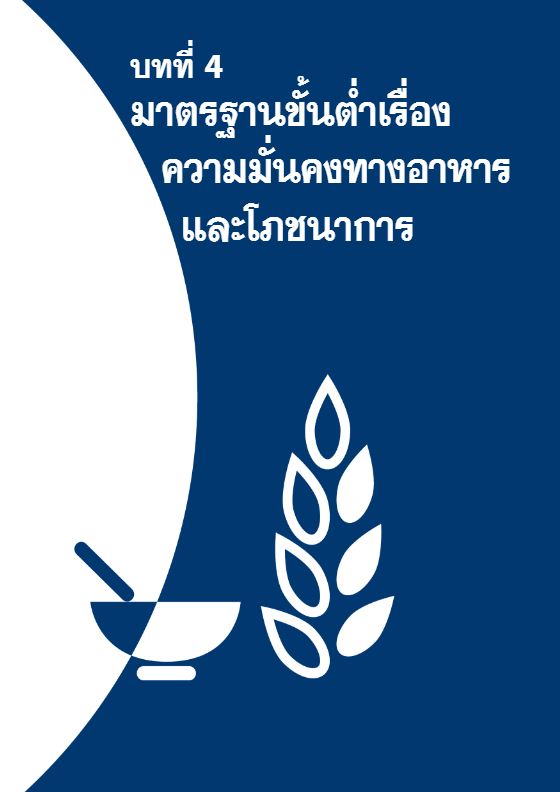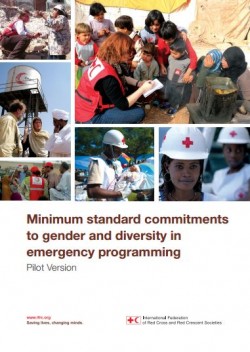Minimum Standard Commitments to Gender and Diversity in Emergency Programming – Pilot Version
Purpose
This checklist provides a quick tool for assessing compliance with the Minimum Standard Commitments in Emergency Programming for Red Cross / Red Crescent staff and volunteers in: emergency health; food security; water, sanitation and hygiene; emergency shelter; livelihoods; non-food items and disaster risk reduction. It serves as a tool for organisations to mark progress and identify their next steps.
Overview
The Minimum Standard Commitments for each sector are based around a framework of: dignity; access; participation; safety; and internal protection systems. The checklist provides specific indicators which an organisation can use to rate its progress (achieved, partially achieved, not achieved and not applicable), justify its score and propose next steps.
Important Note
This document is the key operational document for IFRC and Red Cross Red Crescent National Societies for gender and diversity. Over the past two years and through the leadership of Gender and Diversity Focal Points in Southeast Asia, the Minimum Standard Commitments have been tested at national and regional level, through mainstreaming the in VCA processes, integration in NDRT & RDRT capacity building and deployments, emergency response, gender-based violence research, sensitisation on internal protection systems such as the Code of Conduct and Child Protection policy, and linking with Community Engagement and Accountability work in the region.
From these experiences, and experiences globally, it is time to revisit the standards and see where we can improve the guidance to ensure they continue to be practical and relevant! We very much encourage and welcome your comments to this guidance note through this google doc link. The guidance is split into key sectors: Health, Food Security, WASH, Emergency Shelter, Livelihoods, Non-food items and DRR, so please feel free to feedback on the sector you are most familiar with. The deadline for comments is 15th August 2017.
Usage: Guidance for project implementation
Audiences: Technical staff
![]()



